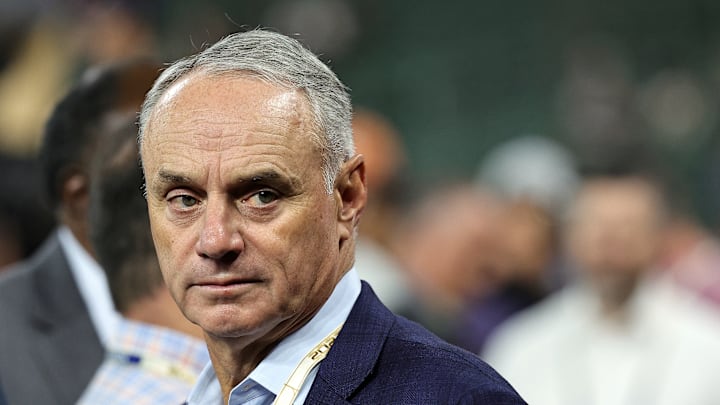Former Red Sox stars are now wearing different uniforms
While their aversion to these long-term deals might eventually be proven to be the wisest path, it has been frustrating for fans to see their favorite players leave for greener pastures.
We're still stinging from the devastating departure of Mookie Betts. The Red Sox offered the former MVP a fair deal that paid him approximately the same amount he ended up getting from his extension with the Los Angeles Dodgers on an average annual basis. Boston wasn't willing to go beyond 10 years though.
Betts aimed for a higher total value that put his contract among the highest in MLB history, which required tacking on an uncomfortable amount of years. Boston was backed into a corner that forced them to trade Betts to the Dodgers, who gave him the deal he wanted that lasts until he's 39 years old.
Last winter, the Red Sox claimed re-signing Xander Bogaerts was their top priority, only for the San Diego Padres to swoop in with an 11-year deal that blew their best offer out of the water. We can criticize the front office for their disrespectful offer the previous spring when they had the chance to lock him up long before Bogaerts hit free agency. That failure will haunt them.
However, when Bogaerts did hit the market, Boston was willing to pay him more per year than the Padres did. Once again, it came down to years. The Red Sox only wanted to commit six years for a 30-year-old shortstop and they were legitimately shocked when he ended up getting nearly twice as many years from San Diego.
Two cornerstones of Boston's last championship are now gone but we can imagine a world where both players had stayed if MLB had limitations on the length of contracts.
If MLB does eventually force the hand of the MLBPA by implementing contract reform, it's unclear what those limits would look like. Would teams be prohibited from offering contracts longer than 10 years? Boston probably keeps Betts if that had been the case when they negotiated with him. Would the limits be reduced based on the player's current age? Bogaerts might still be wearing a Red Sox uniform if a 30-year-old wasn't allowed to sign a deal longer than six years.
